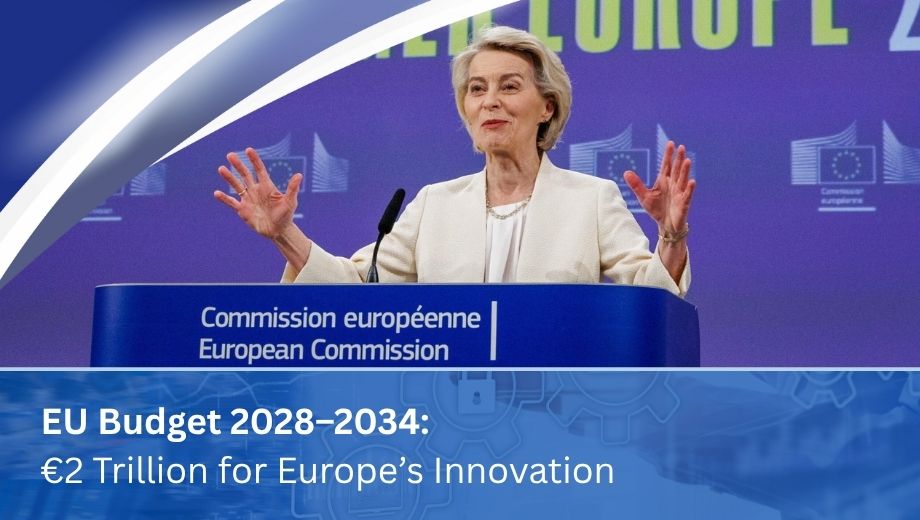
Brussels, 16 July 2025 – The European Commission has presented a proposal that marks a turning point for the future of the Union: a new Multiannual Financial Framework (MFF) for the 2028–2034 period, with a total value of approximately €2 trillion. President Ursula von der Leyen outlined a vision of a stronger and more autonomous Europe, equipped to respond to global challenges with more ambitious and targeted financial instruments.
At the heart of this vision is a decisive boost to research and innovation, seen as key levers to strengthen the Union’s industrial base and technological sovereignty. Within this framework, Horizon Europe – the EU’s flagship research and innovation programme – is set for a significant expansion. The proposed budget nearly doubles the current allocation, rising from around €93 billion (2021–2027) to over €175 billion for the next seven-year period. Horizon Europe will be embedded in the new European Competitiveness Fund, a €410 billion strategic fund aimed at supporting critical investments in artificial intelligence, clean energy, health, sustainable mobility, space technologies, and defence.
The Commission’s stated objective is ambitious: to reach 3% of GDP investment in research and innovation by 2030, combining public funding with private capital. In parallel, initiatives like Choose Europe for Science aim to attract global talent and investments, further strengthening the European innovation ecosystem.
The proposal also introduces important structural reforms. The budget will be more centralised and flexible, with simplified access procedures through the creation of new national and regional “partnership plans”. On the revenue side, the EU intends to finance an increasing share of the budget through new own resources, including EU-wide taxes on large corporations, electronic waste, and tobacco products. The goal is to raise approximately €58.5 billion annually without increasing pressure on national budgets.
Internally, Horizon Europe will also undergo a reorganisation, structured around four main pillars. Alongside “Excellent Science” – which will continue to fund the ERC, Marie Skłodowska-Curie Actions, and the JRC – new instruments will be introduced to support technology transfer, breakthrough innovation, and European missions in strategic areas. Key improvements include deeper integration with the European Competitiveness Fund, reduced administrative burden, and a stronger emphasis on project impact and scalability.
For public and private organisations working in R&I – including universities, innovative SMEs, research centres, and local authorities – this evolution represents a major window of opportunity. Increased accessibility to funding, combined with a focus on industrial development and private capital mobilisation, makes the European research system more open, efficient, and strategically aligned than ever before.
The path toward adoption of the new budget will now require unanimous approval by Member States and a vote by the European Parliament. Some of the proposed new own resources, such as EU-level taxes, will also need to go through national parliamentary ratification. The upcoming discussions, expected to continue over the next two years, will be crucial in shaping the future of EU policy on research, innovation, and industrial development.
For more information:
The 2028–2034 EU Budget for a Stronger Europe